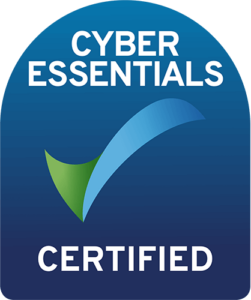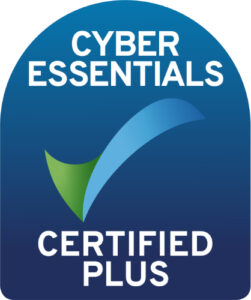Thinc insights
A breakdown of how cloud-based ERP systems work and what makes them different to traditional on-premises setups.
Cloud ERP systems offer flexibility and scalability to growing businesses. But how do they work?
As many companies grow and they start to see the limits of their IT setup, they’ll often consider a move to a full ERP system. In this day and age, we’ve all become accustomed to being able to run all the software we use natively in the cloud, and business applications are no different. There’s an increasing trend towards ERP being based in the cloud, without the need for physical hardware.
This can bring a lot of benefits for many companies, but it’s worth assessing whether it’s the right fit for you before diving into any major tech project. Let’s take a look at how Cloud ERP solutions can work for you.
Enterprise resource planning (ERP) software acts as a digital core of your business. It gives you a comprehensive set of tools to manage a range of key business functions, including finance, manufacturing, HR, supply chain management and more. You also get a single source of truth, with a clear view of your entire operations and all the data you need to run your business. ERP gives you deeper insights, often in real-time, allowing you to turn your data into real strategy that drives your business forward.
Traditionally, ERP software has had to be installed on physical hardware based in your office – or ‘on premises’. However, in recent years, there’s been an increase in the popularity of cloud ERP solutions. These differ in that they don’t require any on-premises systems to work and instead are purely based on the cloud. That means that it’s hosted on servers run by a third party, away from your office, usually in a large data centre.
Any ERP system such as Sage 200, Sage 300, Microsoft Dynamics 365 Business Central or SAP Business One will help your team work more efficiently and unlock more advanced insights into your business. But there are some unique benefits that you only get with a cloud-based ERP.
One of the major benefits of having a cloud ERP solution is that you don’t need to worry about all of the upfront costs associated with the hardware and setup that come with an on-premises deployment. Typically, cloud-based ERP is priced on a subscription basis, and you only have to pay a recurring fee with no initial cost for hardware. This also means you don’t have to spend any money on maintenance as this will be handled by the hosting partner.
Cloud based ERP generally takes less time to get set up as the implementation process is more straightforward. This means the costs associated with this initial setup will be significantly less as well.
As they’re not tied to physical servers in your office, the implementation process for a cloud ERP solution is generally far quicker than a traditional on-premises setup. For comparison, a cloud-based ERP can often be set up in under three months while an on-premises system can take between six months and a year.
Scaling a cloud ERP solution is a very straightforward process and allows you to easily and quickly adjust the resources up or down, depending on your needs at the time. That means you can adapt to changing market conditions, seasonal demands, or growth, without significant hardware or software modifications. On many platforms, this can even be dynamically allocated, which means that the resources automatically scale based on your usage, without manual adjustment.
There’s a misconception that some people still have that cloud ERP solutions aren’t as secure as a more traditional on-premises. However, the opposite is often true. Due to the strict security protocols that cloud providers have in place, you’ll often be more secure using a cloud ERP. This is because you can easily stay on top of security and any compliance standards as it’s all built into the system and is always updated for you.
That isn’t to say that you can’t get a high level of security when you’re not running your ERP on-premises, but to get that level or higher requires much more customisations and maintenance, which is often not realistic for many businesses.
Many ERP solutions allow you to supplement your system with a range of add-ons. These give you additional functionality beyond the base solution and are often tailored for the niche requirements of specific industries. With a cloud-based ERP, adding on these extra tools is a simple process and doesn’t require you to tweak any hardware.
But this won’t be the answer for every business. Because you don’t have access to the physical servers that are running your software, you can often find more in-depth customisability options somewhat limited. That means that if you have very specific requirements for how you need your ERP system to work, cloud may not be the best option. You need to think carefully about what will be most valuable in your case.
Even once you know that the cloud is where you need to be, you’ll still need to choose the right solution from the different options on the market. This means thinking about the functions you need most, licensing, customisations and support. It can be helpful at this point to seek the advice of a cloud ERP solutions specialist.
At Thinc, we have extensive expertise and experience in both cloud hosting and ERP solutions, meaning we’re in the perfect position to help guide you through the whole process – from impartially selecting the right solutions for your business, right through to getting everything set up and offering ongoing support.
Related Topics
Get in touch


Enter your details into the contact form below, and one of our experts will be in touch to arrange a time to speak.
If you’re an existing customer looking for support, please e-mail servicedesk@wearethinc.com, or visit our support page where you can download our remote support apps.